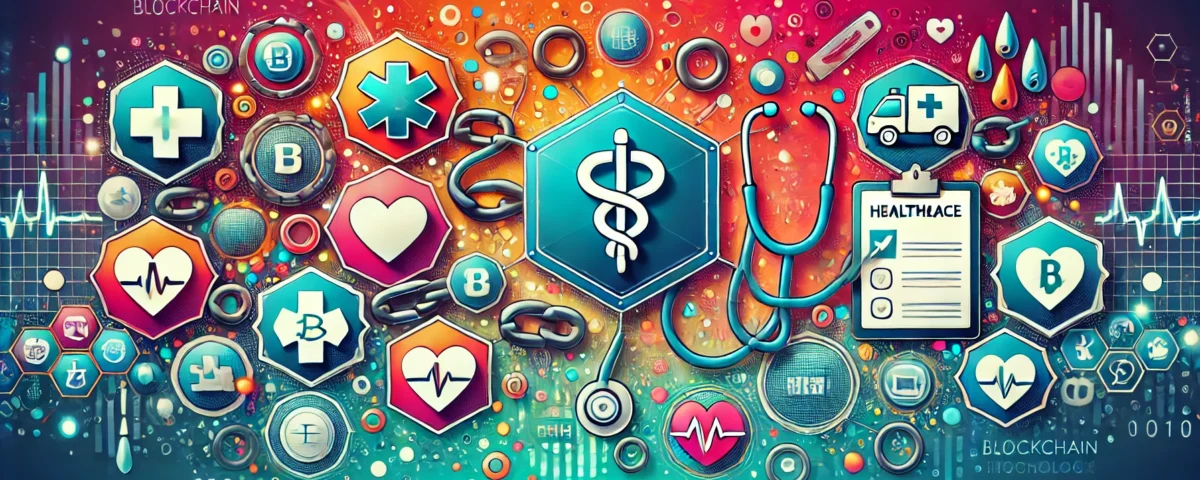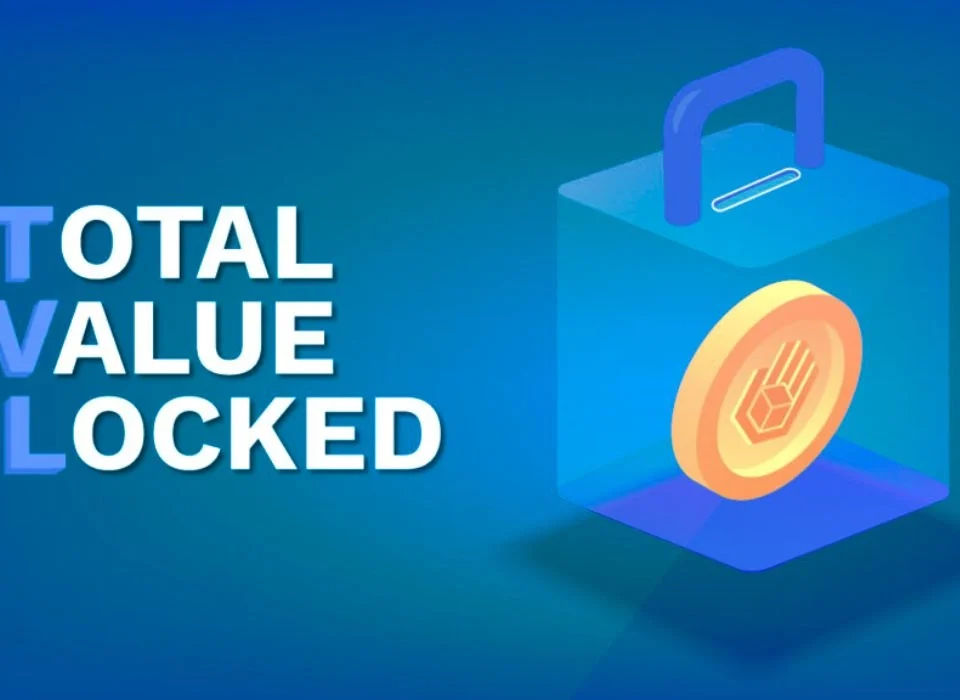
Uniswap and UNI Token: Transforming Decentralized Exchange and Finance
05/08/2024
The Role of Blockchain in Voting Systems
06/08/2024The Role of Blockchain in Healthcare
Blockchain technology, originally designed for cryptocurrencies like Bitcoin, has the potential to revolutionize various industries, including healthcare. By providing a secure, transparent, and decentralized way to manage data, blockchain can address many of the challenges faced by the healthcare sector. This comprehensive article explores the role of blockchain in healthcare, its benefits, potential applications, challenges, and future prospects.
Introduction to Blockchain Technology
What is Blockchain?
Blockchain is a decentralized ledger technology that records transactions across a network of computers. Each block contains a list of transactions and is linked to the previous block, forming a chain. The key characteristics of blockchain include decentralization, transparency, immutability, and security.
How Blockchain Works
In a blockchain network, transactions are verified by consensus mechanisms, such as proof of work (PoW) or proof of stake (PoS). Once verified, transactions are recorded in a block, which is then added to the chain. This process ensures that the data is tamper-proof and transparent, as any changes would require altering all subsequent blocks.
Benefits of Blockchain in Healthcare
Improved Data Security
Healthcare data is highly sensitive, and protecting patient information is crucial. Blockchain provides a secure way to store and manage data, as its decentralized nature makes it resistant to hacking and unauthorized access. Each transaction is encrypted and linked to the previous transaction, creating a secure and immutable record.
Enhanced Data Interoperability
One of the significant challenges in healthcare is the lack of interoperability between different systems and institutions. Blockchain can facilitate seamless data sharing by providing a common, standardized platform for storing and accessing medical records. This can improve coordination among healthcare providers and ensure that patients receive comprehensive care.
Increased Transparency and Traceability
Blockchain’s transparency allows for better traceability of medical transactions and activities. For example, it can track the entire supply chain of pharmaceuticals, ensuring that drugs are genuine and have not been tampered with. This can help combat counterfeit drugs and ensure patient safety.
Streamlined Processes and Reduced Costs
By automating processes and reducing the need for intermediaries, blockchain can streamline various administrative tasks in healthcare, such as billing, claims processing, and record-keeping. This can lead to significant cost savings and improve operational efficiency.
Enhanced Patient Control Over Data
Blockchain enables patients to have greater control over their health data. They can grant or revoke access to their medical records as needed, ensuring that their information is only shared with authorized parties. This enhances privacy and empowers patients to manage their health information.
Potential Applications of Blockchain in Healthcare
Electronic Health Records (EHRs)
Blockchain can revolutionize the management of electronic health records by providing a secure, decentralized platform for storing and sharing patient information. This can improve data accuracy, reduce duplication, and ensure that healthcare providers have access to up-to-date patient information.
Example
- MedRec: A blockchain-based system for managing medical records, developed by MIT, that ensures secure and interoperable health information exchange.
Supply Chain Management
Blockchain can enhance the transparency and traceability of the pharmaceutical supply chain. By recording every step of the drug manufacturing and distribution process, blockchain can help ensure the authenticity of drugs and prevent counterfeiting.
Example
- Modum: A blockchain solution that combines IoT sensors with blockchain technology to monitor and record the conditions of pharmaceutical shipments, ensuring compliance with regulatory standards.
Clinical Trials and Research
Blockchain can improve the integrity and transparency of clinical trials by securely recording trial data and ensuring that it is immutable. This can enhance trust in the results and facilitate data sharing among researchers.
Example
- BlockPharma: A blockchain-based platform that tracks the entire lifecycle of pharmaceutical products, ensuring transparency and traceability in clinical trials and drug distribution.
Billing and Claims Processing
Blockchain can streamline the billing and claims processing by automating verification and reducing the need for intermediaries. This can reduce errors, fraud, and administrative costs, leading to faster and more accurate claims processing.
Example
- Chronicled: A blockchain platform that provides automated compliance and revenue cycle management solutions for the healthcare industry.
Telemedicine
Blockchain can enhance the security and privacy of telemedicine platforms by ensuring that patient data is encrypted and securely stored. It can also facilitate secure and transparent payment systems for telemedicine services.
Example
- Doc.com: A telemedicine platform that uses blockchain to securely store patient data and provide accessible healthcare services globally.
Personalized Medicine
Blockchain can support personalized medicine by securely storing and sharing genomic data. This can facilitate research and enable healthcare providers to develop tailored treatment plans based on individual genetic profiles.
Example
- Nebula Genomics: A blockchain-based platform that enables individuals to sequence their genomes and securely share their genetic data with researchers while maintaining control over their information.
Challenges of Implementing Blockchain in Healthcare
Scalability
Blockchain networks can face scalability issues, particularly when dealing with large volumes of data. Healthcare applications require the ability to handle a high throughput of transactions, which can be challenging for blockchain systems.
Interoperability
While blockchain can improve data interoperability, integrating it with existing healthcare systems and standards can be complex. Ensuring seamless communication between blockchain networks and traditional systems is essential for widespread adoption.
Regulatory and Legal Issues
The regulatory environment for blockchain technology in healthcare is still evolving. Compliance with data protection laws, such as HIPAA in the United States and GDPR in Europe, is crucial. Navigating these regulations can be challenging and may require significant effort and investment.
Data Privacy and Confidentiality
While blockchain offers enhanced security, ensuring the privacy and confidentiality of patient data remains a challenge. Balancing transparency with privacy protection is essential, and solutions such as zero-knowledge proofs and encryption must be explored.
Cost and Complexity
Implementing blockchain solutions can be expensive and complex, requiring significant investment in technology and expertise. Healthcare organizations may face challenges in justifying the costs and managing the transition from traditional systems.
Future Prospects of Blockchain in Healthcare
Integration with Emerging Technologies
The future of blockchain in healthcare will likely involve integration with other emerging technologies, such as artificial intelligence (AI) and the Internet of Things (IoT). Combining these technologies can enhance data analysis, improve patient monitoring, and create more efficient healthcare systems.
Standardization and Collaboration
As blockchain technology matures, the development of industry standards and increased collaboration among stakeholders will be crucial. Standardized protocols and frameworks can facilitate interoperability and ensure that blockchain solutions meet regulatory requirements.
Patient-Centric Healthcare
Blockchain has the potential to shift the focus of healthcare towards a more patient-centric model. By giving patients greater control over their health data and enabling secure data sharing, blockchain can empower individuals to take a more active role in managing their health.
Decentralized Health Ecosystems
The future may see the emergence of decentralized health ecosystems, where various stakeholders, including patients, providers, researchers, and insurers, can interact seamlessly on a blockchain network. This can create a more transparent, efficient, and collaborative healthcare environment.
Conclusion
Blockchain technology holds significant promise for transforming the healthcare industry by addressing critical challenges related to data security, interoperability, transparency, and efficiency. Its potential applications range from managing electronic health records and ensuring supply chain integrity to enhancing clinical trials and enabling personalized medicine. Despite the challenges of scalability, regulatory compliance, and integration, the future of blockchain in healthcare looks promising. As the technology continues to evolve and mature, it will play an increasingly important role in creating a more secure, transparent, and patient-centric healthcare system. Understanding the benefits, applications, and challenges of blockchain in healthcare is essential for stakeholders to navigate this rapidly changing landscape and harness the full potential of this transformative technology.



